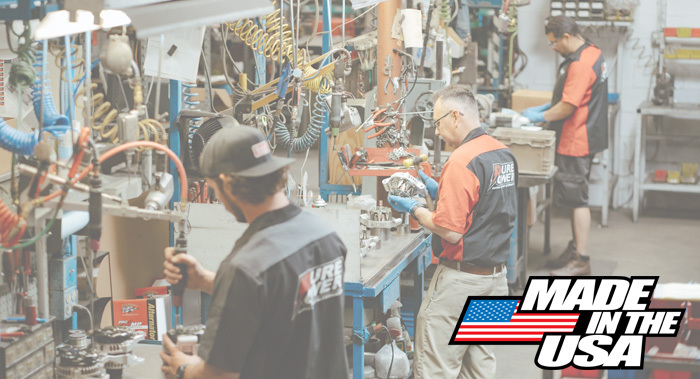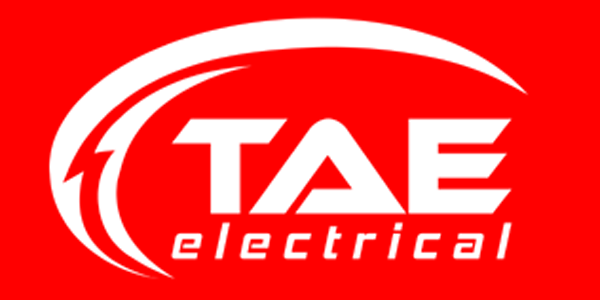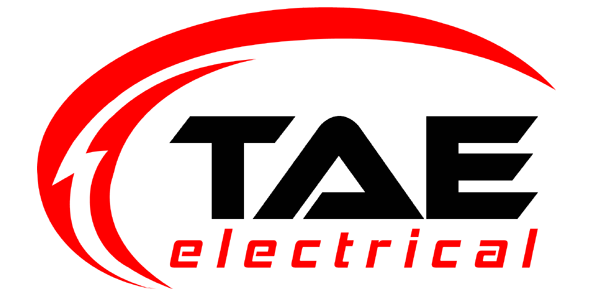Tucson and Phoenix Locations will be closed this Saturday April 19.
How Do Car Alternators Work?
When it comes to the modern world and many of the conveniences we take for granted, the electromagnetic generator is responsible for many of these benefits.
Whether it’s powered by burning coal or a hydroelectric power plant built into a dam, the ability to turn mechanical motion or rotation into storable and usable electric energy is an incredible thing that the world could not function without.
In the same way, much of the functionality of modern cars and vehicles relies on a miniature version of these generators, which is known as an alternator.
These incredible pieces of machinery are the reason your car battery doesn’t have to be replaced or recharged constantly, and are responsible for turning the mechanical energy of the car’s wheels rotating into usable energy that powers your lights, radio, and ignition sequence.
In this guide for alternators, we’ll cover the basics of how they work, when you might need to replace yours, and the benefits you can receive from upgrading yours to a more powerful version.
Basics of the Alternator
An alternator consists of several simple components which can turn the car into a moving generator when placed together in the right way, capable of producing its own electricity for use within the vehicle.
The main two parts of an alternator are:
Stator
A stator is a series of wire coils, usually made out of copper. This is the main component of an AC generator, or alternator, and is where the electrical charge is produced.
The electrical energy is produced by the excitation system, which involves rotation or other mechanical energy, and is connected to several outputs where it can be utilized in the vehicle.
This output is measured by an AVR, or automatic voltage regulator, which prevents the system from overloading or burning out any components.
Rotor
The rotor is the other essential component of an alternator. Without this, the stator wouldn’t be able to produce any electricity, as the copper wire would remain in stasis.
The rotor is known as the rotating magnetic core, or flywheel, and is attached to the drive system through the alternator pulley or serpentine belt, which creates the rotational energy necessary for the system to function.
The rotor also contains wires and a magnetic field, and the interaction of the rotating magnetic fields with the wires of the stator is what produces a usable charge that powers the car.
This ingenious device is the reason that as long as your engine is turned on, the car won’t run out of electrical energy. Without it, many of the principles and comforts of the modern world would be lost.
Can you imagine having to recharge your car every night or replace your battery every few weeks or even more? Without the invention of the alternator, this would be our unfortunate reality.
When to Replace an Alternator
Although much of the time an alternator will last as long as the vehicle itself, damages and burnout can occur. If you’re having trouble starting your vehicle and have ruled out other causes like the starter or battery, it’s possible that the alternator could be the culprit.
Damage to an alternator can be caused by basic wear and tear on the parts, water or heat damage, overuse, damage to the wires, or simply faulty parts.
Any of these issues can cause your car to be unable to start or can cause issues like your headlights or radio being underpowered or not working at all.
Other signs you could need to replace or repair your alternator are:
- A dead battery or battery that doesn’t seem to charge
- The battery warning light on your dashboard going off
- Trouble starting or stalling occurring frequently
- Unusual whining sounds under the hood that could indicate a pulley misalignment with the alternator
- A smell like burning wires or rubber
Performance Alternators
Some hobbyists or racers choose to install high-powered performance alternators in their vehicle to allow it to run more powerfully or quickly. In addition, many modifications to a vehicle, like LED lights, a sub system, or hydraulics, will require more power than the factory installed alternator will output, so a performance alternator is a good idea to prevent the battery from draining, leaving the vehicle stalled.
If you fall into any of these vehicle hobbyist categories, it’s a good idea to consider upgrading or replacing your alternator.
The alternator is an often overlooked but critical component of a vehicle, making sure that electrical energy is maintained and flowing smoothly through all the necessary components. If you like being able to start your car on demand with a simple turn of a key, having a functioning alternator is a necessary step in this process.
Indeed, the mechanical principles underlying the alternator are responsible for much of the things we take for granted in the modern world, even down to the ability to turn on lights with the flip of a switch.
It is important to ensure your alternator is running smoothly to guarantee your car’s best possible performance.

NEED HELP? CALL US 1-520-622-7395
M-F 8-5 / SAT. 9-2
FAST SHIPPING
Orders placed by 2pm EAST will be processed same day








